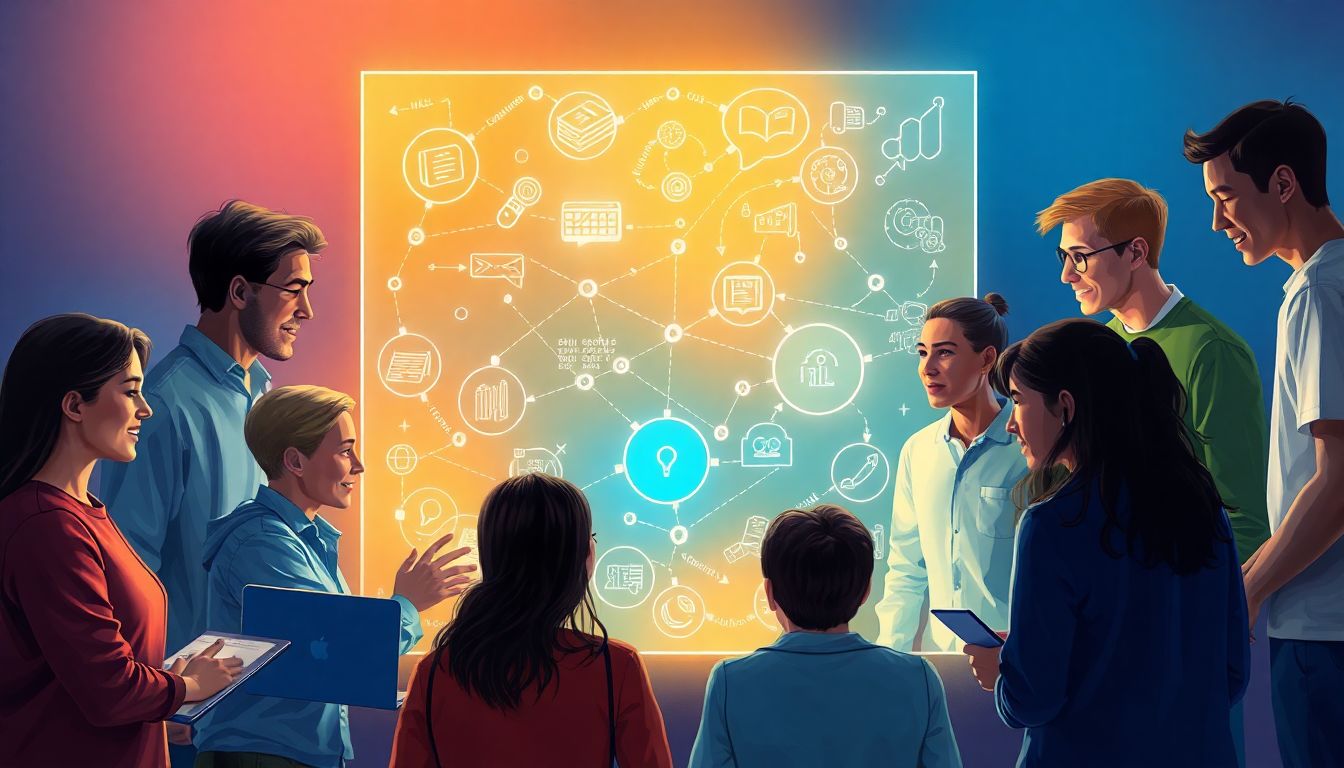Thrive in Your Career: Mastering Continuous Learning and Upskilling

In today's fast-paced job market, nearly 70% of workers are expected to change careers at least once in their lives. With the rapid growth of technology, staying relevant is more crucial than ever. Continuous learning and upskilling play a vital role in career advancement and personal fulfillment.
Continuous learning refers to the ongoing pursuit of knowledge for personal or professional development. Upskilling, on the other hand, focuses specifically on enhancing or acquiring new skills related to your current job. Both play essential roles in keeping your skills sharp and relevant.
Embracing continuous learning and upskilling offers significant benefits. They provide opportunities for professional growth, boost job satisfaction, and enhance employability, making you a valuable asset in any workplace.
Identifying Your Learning Needs
Assessing Your Current Skillset
Start with self-assessment. Reflect on your strengths and weaknesses. Consider using tools like SWOT analysis to analyze your skills. Seeking feedback from colleagues and supervisors can also help pinpoint areas for improvement.
Identifying Skill Gaps
Look at job descriptions in your field. They often reveal what skills are in demand. Researching industry trends can keep you updated. Online skill gap assessments can also help identify areas where you need more training.
Prioritizing Learning Goals
Focus on high-impact skills that matter most to your career. Set SMART goals—Specific, Measurable, Achievable, Relevant, and Time-bound. This approach helps provide a clear path for your learning journey.
Effective Learning Strategies
Choosing the Right Learning Method
Selecting the right learning method is crucial. Consider online courses from platforms like MOOCs, Coursera, or edX. Workshops, mentoring, and on-the-job training can also be effective. Don't overlook books and podcasts as valuable resources.
Optimizing Your Learning Environment
Create a dedicated space for learning. Reduce distractions to improve focus. Utilizing time management techniques like the Pomodoro technique can help maintain productivity.
Building a Consistent Learning Habit
Set realistic learning goals and schedule regular time for study. Track your progress to see how far you've come. Celebrate small milestones to keep motivation high.
Leveraging Resources and Tools
Online Learning Platforms
Many reputable platforms offer a variety of courses and certifications. Websites like Coursera, LinkedIn Learning, and Khan Academy provide excellent resources to aid your learning journey.
Professional Networking
Networking plays a vital role in your career. Utilize LinkedIn to connect with industry professionals. Attend events and join organizations relevant to your field. These opportunities can open doors and provide valuable insights.
Mentorship Programs
Find a mentor within your organization or through professional networks. Mentorship offers guidance, support, and valuable knowledge from someone with experience.
Demonstrating Your Upskilled Abilities
Updating Your Resume and LinkedIn Profile
Make sure to update your resume and LinkedIn profile with new skills and certifications. Highlight these achievements clearly to attract potential employers.
Seeking Opportunities to Apply New Skills
Look for chances to put your new skills into practice. Volunteer for projects, take on challenging assignments, or actively participate in team efforts. Real-world application solidifies your learning.
Seeking Feedback and Recognition
Regularly ask for feedback on your performance. Show your achievements to your supervisors. Recognition can lead to more opportunities for career growth.
Measuring Your Progress and Adapting Your Approach
Tracking Your Learning Outcomes
Utilize tools like learning journals or personal dashboards to keep track of your skill development. Monitoring progress helps you stay on target.
Regularly Reviewing and Adjusting Your Learning Plan
Review your learning plan regularly. Adjust your strategies based on progress, feedback, and changes in the job market to stay relevant.
Embracing Lifelong Learning
Adopt a growth mindset that embraces lifelong learning. Continuous adaptation to new challenges not only enhances your skills but also keeps your career trajectory upward.
Conclusion
In summary, continuous learning and upskilling are essential for both personal growth and career advancement. They open doors to new opportunities and keep your skills relevant in an ever-evolving job market. Commit to your learning journey today. Start by identifying your skill gaps and setting realistic goals. Embrace the process and watch your career flourish. Don't wait—take the first step toward a brighter future now!
.jpg)

